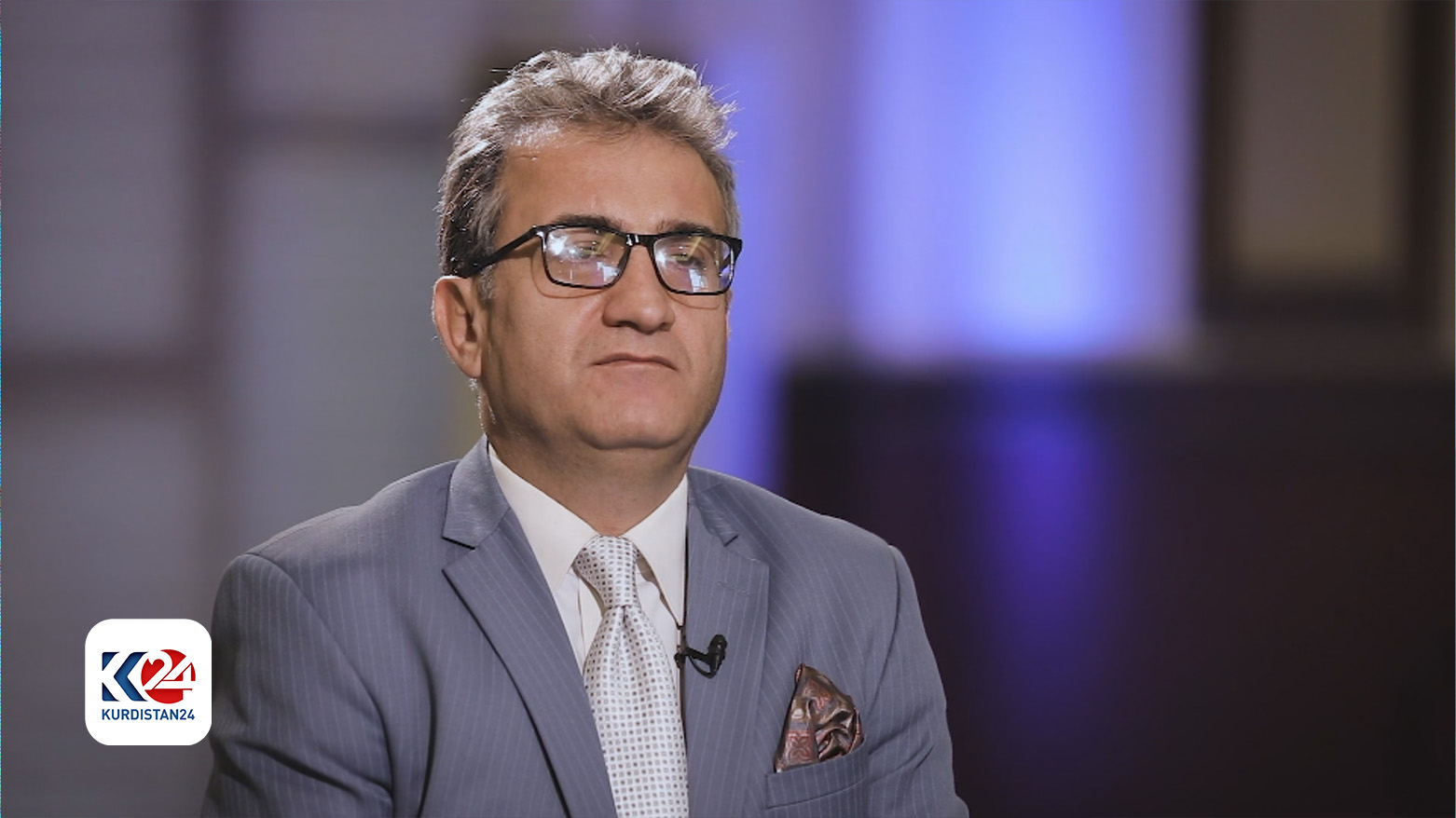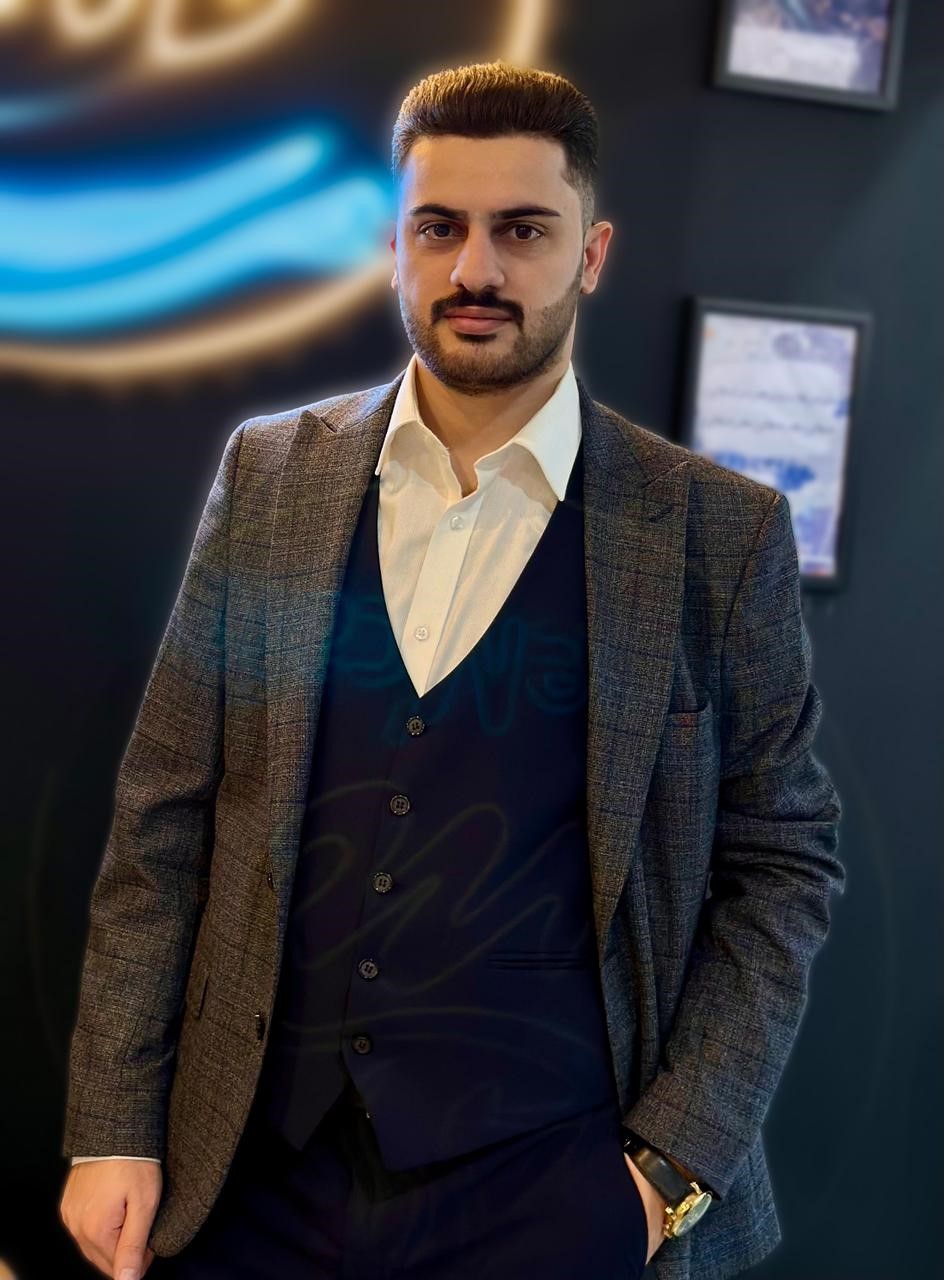‘Different Kurdish dialects not threat, but positive enrichment,’ says prominent Kurdish academic

ERBIL (Kurdistan24) – Dr. Bakhtiar Sadjadi, a well-known Kurdish academic, on Tuesday gave an exclusive interview with Kurdistan24 regarding the study and research of the Kurdish language.
Dr. Sadjadi is an associate professor at the Department of English Literature and Linguistics at the University of Kurdistan in Sanandaj, Iran, where he specializes in English and Literary Criticism.
He is the founder and head of Iran's first and only Department of Kurdish Language and Literature, which lasted from 2015-2020. Notably, he studied in England, where he received his Ph.D. in English Language and Literature from the University of Exeter.
Research interests of Sadjadi include Literary Criticism, Cultural Theory, English Literature, and Kurdish Literature. Additionally, he has written several books and publications in Kurdish, English, and Persian.
Sadjadi underscored that the lack of academic writing in Kurdish is one of the challenges whereas contrary to many people’s views “all these different dialects in the Kurdish language, is not a threat to the language, but a positive point to enrich the language.”
The Kurdish professor also stated that the language’s dialects have developed throughout history in different parts of Kurdistan under the rule of various political entities.
"The Kurdish language has a very rich cultural background. For instance, removing Arabic words from Persian would have a negative impact on the language. However, removing Arabic words from Kurdish would not affect that language,” he stressed while referencing the diverse ethnic influences on the Kurdish tongue.
Meanwhile, he noted the language is underrepresented in international centers and academics must do more to increase its audience.
The academic also encourages Iranian authorities to allow Kurds to study their own mother tongue even “from kindergarten.”
The Kurdish language (Kurdî) has several dialects, the most spoken variants being Sorani, and Kurmanci. Other lesser-spoken variants include Badini, Hawrami, Zazaki, Gorani, Laki, and Feyli. The language is primarily spoken in the countries of Iraq, Iran, Syria, and Turkey, and is also spoken in various other countries with Kurdish diasporas, particularly in Western European and Nordic countries. Its various dialects are written in several scripts, including Latin, Cyrillic, and Aramaic, yet phonetically the language is part of the Indo-European language family.
Kurdish has often been censored throughout modern history, specifically by the former Ba’athist regime in Iraq and present-day Turkey. Although the language is spoken by millions of people in Turkey, it is not officially recognized and is generally not taught in schools. Turkish authorities often impose fines on people who speak Kurdish in public, albeit as of 2011, the language was permitted to be broadcast on television and radio networks in a limited capacity.
Iran, like other Middle-Eastern countries, has measures in place to prohibit the study of Kurdish. In 2019 Kurdish language activist Zahra Mohammadi was arrested on charges of teaching Kurdish and spent about seven months in prison before being released on bail.
Mohammadi was rearrested in January 2022 and sentenced to five years in prison on the charge of forming an “anti-state group.” She was eventually freed on Feb. 11, 2023.
However, while Persian is the official state language in Iran, teaching and practicing other languages is technically allowed per the country’s constitution. Still, members of minority groups in the country usually complain that they are harassed when exercising their cultural rights.
Dr. Sadjadi was born in 1976 in Sanandaj – a city in western Iran – and is an active member of the Kurdish Language Scientific Association.
